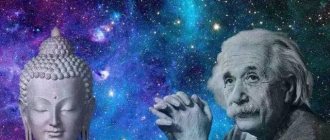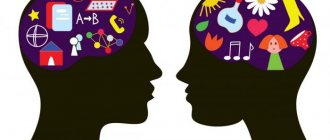Writers often use the concept of morality as a synonym for moral principles and ethical standards. The narrow meaning of the term means internal guidelines of the individual, according to which the individual acts based on conscience and free will. Morality is analogous to law, but it is not regulated by government codes. These are external requirements imposed on a person, his behavior, and attitude towards people.
Personal moral progress is a process of changing spiritual values, during which a person acquires independence, freedom, and harmony with himself. The key regulator is responsibility and a sense of duty. To achieve progress, an individual needs to master the cultural foundations, study and accept the norms existing in society.
Moral improvement is a change in a person’s inner world, his views on life under the influence of a number of events and phenomena. It is based on conclusions made by a person after a certain event.
Landmark, position, principles
A moral guideline is the goals and prohibitions (existing in the mind) that a person uses as a model for constructing a line of behavior.
Those. a moral guideline represents a clear framework beyond which a person does not allow himself to go.
Moral position is an assessment of the norms of social behavior and their compliance. A person passes this assessment through an internal “filter”, realizing it and accepting it as a guide for his own actions. Moral position includes:
- behavioral motives,
- self-regulation and control of one’s own actions,
- conscientiousness,
- a sense of human dignity (from the position of a person who has chosen a certain moral position for himself).
Moral principles are the framework on which social and interpersonal relationships are built.
At the same time, it is fair to assert that moral principles are universal, support social foundations through an external mechanism of influence (public approval or censure of behavior patterns), and can be expressed in moral norms.
Description of the concept
Moral character is a phenomenon that is present in every society. This is a set of certain characteristics inherent in a particular society. In order to exist safely in it, you must necessarily adapt to the opinion of the majority. Without a doubt, people can be judged only for the fact that they want to have their own opinion and strive to somehow defend it. At the same time, moral character always remains something unshakable, necessary and spiritually significant. Let's consider the main characteristics of the concept.
Human qualities: list
Morality and ethics intersect, forming a single system of qualities. This category includes the moral block:
- love for people
- respect for others,
- devotion (loyalty),
- selfless beginning (motivation to act due to good intentions rather than potential gain),
- spirituality (combination of morality and religiosity).
And the moral block :
- call of Duty,
- responsibility,
- honor,
- conscience,
- desire for justice
- dignity.
In addition to positive moral qualities, there are also negative ones : anger, envy, deceit, etc.
If the level of morality in a society is low, over time, negative actions and qualities become acceptable and preferable for society, and are then instilled in younger generations as the current norm.
The substitution of concepts occurs very quickly and the dynamics can be tracked even using the example of children and their parents.
A positive moral quality is recognized as such at the level of entire communities. And such universal qualities guarantee that their owner will be identified as a moral and educated person.
The most highly valued in modern society are responsibility, humanity, openness, sincerity, discipline, loyalty, collectivism, tact, hard work, diligence, and cleanliness.
High moral qualities are those qualities that are in the “positive” pole in a given society/culture.
But in some cases , “high” are those qualities that are dictated not so much by the need to successfully integrate into society, but by the deep and sincere feelings of an individual. This category includes patriotism, chastity, and absolute humanism.
Responsibility to yourself
Spiritual development presupposes that the individual understands what he is moving towards and sets himself a specific task. Nothing happens in this world without purpose. For any action, even the most basic one, you need to expend certain internal resources. Responsibility to oneself is something that many people run away from and want to free themselves by all available means. You will probably have to work a lot on yourself, strive to overcome laziness, confusion, despondency and bad mood. Taking responsibility means avoiding criticism and blame as much as possible. If a person at some point in time wants to remain satisfied with himself, then he has to go through many obstacles. This is not always a pleasant thing to do, since it is necessary to strive to demonstrate character strengths.
Behavior
Behavior becomes moral when an individual ties it to the existing system of moral values and tries to bring his actions to positive guidelines.
The key element of moral behavior is action .
An act, in turn, consists of an action and can receive a positive or negative assessment from members of society.
Abstaining from any action at a time when morality requires a person to be active can also be regarded as an act.
Moral behavior is difficult to evaluate objectively, but others always pass other people’s actions through “filter factors” :
- motives (if a noble motive led a person to an unsightly result, the degree of indignation of society will decrease),
- the result of an action
- objective reality (the circumstances in which the act was committed),
- means of achieving the task (a person can use “forbidden techniques” on the way to a good goal, which will seriously darken his moral character).
Moral behavior is always an attempt to find a balance between the restrictions established by society (framework) and one's own freedom (creative choice).
Responsibility to people
A highly moral person necessarily strives to help others. That is, he does not limit himself exclusively to his individual world. When we constantly move among people, we have certain obligations to them. If you help someone, then as a result you will be responsible for the one who is currently receiving support.
Once you take on some kind of social work, you cannot give it up overnight. Usually people realize that by doing so they will let down their colleagues, friends or just acquaintances.
What are the standards?
Moral standards can be represented as a scale with two poles , one of which displays encouraged behavior patterns, and the other condemned.
Moral norms can be divided into two types: about what is permissible and what is unacceptable (about good and evil).
The concepts are opposite and mutually exclusive, which means that each norm has its own antipode.
This forces a person to take a stable position, since it is impossible to maintain neutrality in conditions of polarity (unless inaction is a conscious choice of a person who is ready to be condemned by others).
Politeness
This is something without which, in principle, it is impossible to exist comfortably in any established team. A polite person commands respect, recognition and praise. His actions are automatically approved, even if they are new and incomprehensible to the majority. Anyone who knows how to behave adequately to the current situation always ends up in a better position.
Politeness as a personal characteristic implies the presence of modesty. If a person does not expose himself to public scrutiny, or does not try to somehow infringe on others, then he is often credited with a high moral character.
Relativism, what is it?
Moral relativism is a position whose proponents deny the possibility of the existence of absolute evil or good.
According to moral relativism, morality is not tied to universal standards.
Ethical behavior is only a variable value that changes as a result of changing scenery (culture, participants in the action, nuances of the situation, etc.).
Relativism can be viewed in two ways:
- the concepts of “good” and “evil” are conditional in themselves,
- public morality is conditional relative to unconditional standards of good and evil.
The desire to be useful
Moral character presupposes that we are doing something that will bring something pleasant to others. An individual cannot live only for himself, guided in everything exclusively by personal motives. Otherwise, some spiritual aspirations begin to be lost, and the need to act selflessly disappears altogether. The desire to be useful can be called an extremely significant characteristic that helps to take a worthy place in this world. If a person wants to please others and does it sincerely, he soon discovers that the process itself brings him joy. If we benefit those around us, then we ourselves, of course, become much happier.
Briefly about the theory of moral development
How is morality formed in children? Many scientists have asked this question. But in the modern world, only Lawrence Kohlberg's theory has achieved wide recognition.
Kohlberg used the dilemma method. He projected onto children situations in which the young participants in the experiment had to make difficult moral choices.
As a result, the idea that children develop spontaneous morality, not tied to any numbers or indicators, was rejected.
Kohlberg identified three levels of development of moral consciousness:
- Age from 4 to 10 years. This level was called "pre-moral". In the period from four to ten years, a child puts his own benefit and safety at the forefront. At the first stage of development, he seeks to gain approval in order to escape punishment. And the correct tactics of behavior are easy to build with the help of tips (social norms). At the second stage, the child is already focused on potential rewards for good behavior. The kid thinks not about punishment, but about benefit.
- Age from 10 to 13 years. The level is called conventional. During this period, the child already begins to understand the rules and values accepted by society. At the first stage, the measure of moral success is people from one’s close circle. Shame and the reluctance to disappoint authority figures pushes people to follow the rules. At the second stage, the child already understands the reasons why the restrictions were introduced. He also sees them as a way to assert and protect his own rights.
- Age after 13 years. A teenager creates his own system of moral values, adjusting the template accepted by society.
At the first stage, a lot of attention is paid to those norms that help to survive and maintain peace in society. At the second stage, a person already has stable moral principles, which he adheres to despite external influences and circumstances. If necessary, the individual will be able to fight back and endure the disapproval of the crowd if the behavior of the crowd seems unfair.
Examples from fiction
- L.N. Tolstoy "War and Peace" .
In the novel L.N. Tolstoy’s “War and Peace” touches on many issues that are still relevant in our time. One of the key themes of the work is the theme of upbringing in the family.
The main character of the novel, Andrei Bolkonsky, is the son of Prince Nikolai Bolkonsky. He appears before us as a young, educated, well-mannered, honest, open, worthy person. At the evening in Anna Scherer's salon, Bolkonsky feels uncomfortable; he is contemptuous of social intrigue and hypocrisy. He does not accept false gloss, pomposity and pretense in the behavior of representatives of a given society. However, the young prince is very restrained, so he does not behave arrogantly and does not openly show his disrespect for others. He does not impose personal moral guidelines on others, he simply lives in accordance with his life principles.
Andrei Bolkonsky’s sister, Princess Marya, was the same. Her appearance was not particularly attractive, but the girl had a pure and beautiful soul. Marya did not like secular society, however, she could find a common language with everyone. The girl is characterized by mercy and compassion. She tries to help everyone who needs it, so secretly from her father she receives “God’s people” in the house. She never deceives others and is not capable of betrayal. Family and faith are the main priorities in Marya's life, and she learned this from her father. Only thanks to the strict upbringing of Nikolai Bolkonsky were his children able to grow up as worthy people deserving of respect.
- DI. Fonvizin "Nedorosl" .
The theme of education and the formation of moral guidelines is the main one in the comedy by D.I. Fonvizin "Undergrowth". After the publication of the book, the word “undergrowth” became a common noun for lazy people who do not want to develop. However, in fact, the main character’s problem is not in himself, but in his family and upbringing.
Children follow the example of their parents and adopt their life values. And Mrs. Prostakova was not the best example to follow. She had a negative attitude towards literacy, considered reading boring, and often practiced violence, applying physical punishment to servants. She was a rude, greedy and cruel woman who treated everyone around her with disdain. Therefore, it is not surprising that Mitrofanushka not only does not want to study, but also does not respect her parents. He adopted all the vices from his mother and became an ignorant person, contemptuous of all people.
Mrs. and Mr. Prostakov sincerely loved their son, tried to provide him with a decent future, but due to incorrect moral guidelines they themselves could not understand how to do this. All the consequences of bad upbringing are revealed in the final episode, where Mitrofan heartlessly turns away from his own mother. Starodum accurately summed it up: “These are the worthy fruits of evil!”
- I.A. Goncharov "Oblomov" .
The main character of the novel I.A. Goncharov “Oblomov” was born into a family of rural landowners who owned the Oblomovka estate. An atmosphere of laziness and inaction reigned on the estate. The main values for all residents of Oblomovka were sleep and peace.
Ilya was the only child in the family, his parents doted on him. The boy grew up surrounded by love and care. Excessive care, because he was not allowed to do anything on his own, any desire was immediately fulfilled. Ilyusha was an active and inquisitive boy, but his loving parents suppressed any desire to act in him, raising him by their own example. Over time, the main character got used to idleness, he simply did not know that he could live differently. The only joy in his life were his nanny's fairy tales, the hero of which he imagined himself to be. Ilya indulged in daydreaming so much that it subsequently became difficult for him to distinguish reality from the fictional world.
One of the main problems in Oblomov’s upbringing is that his parents did not instill in him a love of work, patience and diligence in his childhood. They really wanted their son to become a high-ranking official, but did not make any effort to achieve this. They had no idea that without effort they could not achieve success. Their peculiar system of education ruined the life of Ilya Ilyich. He was afraid of reality, avoided difficulties and did not know how to make the necessary decisions. He closed himself off in his own little world and lost the meaning in life. And this miserable existence could hardly be called life, because Oblomov had neither goals nor aspirations. He simply went with the flow, taking the position of an observer.
- N.V. Gogol "Dead Souls" .
The main character of the poem N.V. Gogol's "Dead Souls" was not a happy childhood. Chichikov was brought up in strictness, he had no real friends, all his thoughts were occupied with how he could earn a penny. His father’s words sunk deep into his soul that friends can betray, but money earned will always bring benefits in life. This is what Pavel Ivanovich was guided by in the future; material wealth always came first for him.
The main character in life followed his father’s instructions: “Most of all, please your teachers and bosses” and “Save a penny... you will do everything and get through everything in the world with a penny.” This is where he saw the path to success and recognition. Even from the time he was studying at the school, Chichikov began to hang out with those “who are richer, so that on occasion they could be ... useful.” On the advice of his father, he did not spend money on anyone, but he knew how to behave so that they would spend it on him. In addition, he managed to engage in trade during his studies.
In the future, having money and increasing one’s own capital became the meaning of Pavel Ivanovich’s whole life. Following his father's commandment to save a penny, he stepped over his conscience and moral standards. Thanks to his intelligence and ingenuity, Chichikov could benefit from everything. He became a cynic and a hypocrite, a real artist and a swindler.
The instruction of the protagonist's father is proof of the impact that parental words can have on a child, what kind of child he will become, and what path in life he will choose, guided by the moral guidelines of his parents.
- A.S. Pushkin "The Captain's Daughter" .
The parents of the main character of the novel A.S. Pushkin's "Captain's Daughter" was guided by high moral principles in raising her son. The boy combined the kindness and responsiveness of his mother with the honesty, directness and courage of his father. Andrei Petrovich Grinev was against a carefree dissolute life, so he refused to send his son to light duty in St. Petersburg. He wanted Petrusha to “smell gunpowder” and become a real soldier, so he sent him to the Belogorsk fortress.
Before his son left, his father gave him instructions: “Serve faithfully to whom you swear allegiance, obey your superiors; Don’t chase their affection; don’t ask for service; don’t talk yourself out of serving and remember the proverb: take care of your dress again, but take care of your honor from a young age.” It was these words that became the main guideline in the life of Pyotr Grinev and helped him in the future not to stray from the right path. This became a kind of oath to preserve the honor of his family, which the main character will never betray.
Pyotr Andreevich learned his father's lesson well. For the first time, he acted honorably, returning the lost money, despite the fact that his faithful servant tried to persuade his master to evade the settlement. Then the main character thanked the tramp who showed them the way by giving him a hare sheepskin coat. Subsequently, this nobility saved the life of not only Pyotr Grinev, but also Savelich, who was dissatisfied with such unreasonable behavior of his master.
The next event where the main character of the novel showed his honor and dignity was a duel with Shvabrin. He acted like a real man, challenging the one who discredited the name of an innocent girl to a duel. Moreover, unlike the offender, Pyotr Andreevich acted honestly, without breaking any rules.
The young officer fully demonstrated the inviolability of his principles and devotion to the Motherland during the capture of the Belogorsk fortress. Being one step away from death, he refused to swear allegiance to the false king. And by this act he aroused respect even from such a villain as Pugachev, receiving his pardon.
Thus, Peter Grinev’s father was able to raise his son as a real nobleman, who considered it impossible to change this oath and break it even to save his own life. The main character never backed down from his father's orders. From the beginning to the end of the novel we see a courageous young man gradually maturing, who sacredly keeps his word.
- I.S. Turgenev "Fathers and Sons" .
The main character of the novel I.S. Turgenev “Fathers and Sons” was raised properly, but did not follow his parents’ example, but chose his own moral guidelines in life. Evgeny Bazarov said that: “Every person must educate himself - well, at least like me, for example...”. He believed that nothing has power over a person, everyone is free to arrange their life the way they want. And he consciously became a nihilist, denying everything and everyone.
Bazarov was very different from his parents, but his father’s profession still influenced the choice of the protagonist’s life path. His father was a doctor, and Evgeniy also became interested in medical science. Vasily Ivanovich was a simple man by birth, but quite educated and diversified. He was always ready to help those in need, providing medical care to the peasants. So was his son, who wanted to be useful to others not in words, but in deeds. However, people could not understand a person who denied everything to which they were so accustomed.
Bazarov raised himself as a man of modern times, made himself a nihilist. His denial was evident in everything: in education, in speech, in manners, in relation to nature, art, and traditions. But in the end, the main character of the novel himself became a victim of his upbringing. Love made him understand that all the theories that guided him in life were wrong. And he himself is an ordinary person, over whom feelings have power.
This insight dealt a strong blow to Bazarov - he did not know how to live further, what to believe in, what to rely on. In search of answers, he decided to go to his parents. And it was there, in his parents' house, by chance, that he contracted a fatal disease during an autopsy of the body of a man who had died of typhus. Only before his death, the main character realized what is really important in life and what does not matter
The ability to admit your mistakes
If a person shows emotional flexibility, then he certainly deserves respect. Being able to admit mistakes made is definitely a skill for strong people who want to constantly move forward. A weak person usually insists on his own rightness to the last, because he is afraid to discover existing shortcomings.
Only those who have gone through the process of their own individual development have a clear idea of how the world actually works. If you are not afraid to address your mistakes in a timely manner, you can grow significantly personally and professionally.











